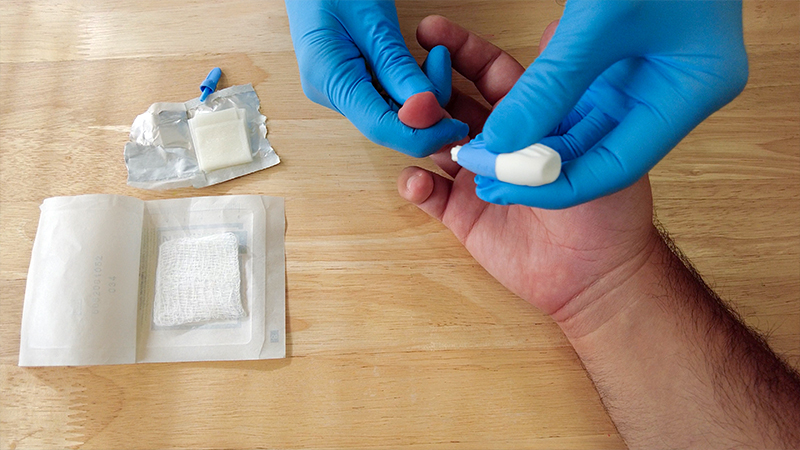Mohave County in Arizona is among the top 5% of counties nationwide considered to be most susceptible to an outbreak of the hepatitis C virus. But this rural county – the state’s second largest in area – lacked a specialized clinic for patients who test positive. It’s also a Medically Underserved Area, with a ratio of 1,890 patients to one primary care physician.
Leaders at Kingman Regional Medical Center knew that to improve the health of the community, it was time to establish a new initiative for HCV treatment and elimination. They formed an innovative model, which is led under the medical directorship of Richard Manch, MD, an award-winning hepatologist.
Leveraging the Disease Management Clinic
“While hepatitis C is easily treatable, symptoms often do not present until liver damage has occurred. This could be as long as decades after initially contracting the virus,” said Ambulatory Care Pharmacy Clinical Manager Linda Williams, PharmD.
“Failing to detect the virus early can result in serious long-term health effects like cirrhosis, liver cancer, and liver transplant. That’s why it was important for us to establish our hepatitis C program.”
Staffed entirely by pharmacists, KRMC’s Disease Management Clinic leads the effort, partnering with regional healthcare providers through a collaborative practice agreement to increase access to care and extend provider services. A major part of the initiative is universal screening: All patients 18 and older are tested for HCV at least once in their lifetime.
Customizing clinical tools
Dr. Williams engaged MEDITECH for guidance on extending workflows in the Expanse EHR to more effectively screen, monitor, and treat patients.
“When we started out, our clinic hadn’t received an HCV test referral in over a year. But then we worked closely with MEDITECH Professional Services to incorporate hepatitis C screening protocols into our primary care documentation,” said Dr. Williams.
“Standard documentation was added to remind physicians to screen their patients and to document potential risk factors that may suggest a patient should have annual screenings. We also created standard order sets, referral options, a health protocol, and Disease Management Clinic documentation for those patients who tested positive.”
Additionally, MEDITECH worked with KRMC to create two registries that help monitor patients in the program.
“One registry tracks all patients who are positive for HCV. The other is used to track higher-risk patients, to make sure they are following through with annual screenings,” Dr. Williams said.
To track outcomes, MEDITECH also collaborated with KRMC to personalize Business and Clinical Analytics dashboards to the program’s needs.
“Interactive dashboards display the percent of patients screened, as well as results, age by decade, ethnicity, and other relevant patient details,” said Dr. Williams. “A geographic analysis dashboard helps to identify areas of potential outbreak, as well as areas where screening is light and more community outreach is needed.”
Overcoming barriers
KRMC’s success hinged on making treatment affordable. The average cost for an HCV regimen of eight to 12 weeks averages $20,000-$50,000. Many adults in Mohave County do not have health insurance, but even with coverage, patients may still end up with high copay prices of $1,000 or more.
To overcome these obstacles, a care coordinator helps patients secure funding and navigate services needed to comply with payer requirements. Additional financial assistance through grants and commercial programs has enabled KRMC to keep the average copay between $0-$10.
The initiative seems to be paying off. Since its launch in January 2021, approximately 165 patients per month have been screened for HCV, with a 6.5% positivity rate.
“We now average 7.5 HCV referrals per month,” said Dr. Williams. “And as of May 2023, 75 patients have been cured of hepatitis C through confirmatory labs drawn 12 weeks after finishing antiviral therapy.”
Noting that staff take great pride in this accomplishment, Dr. Williams said, “We’re always looking for opportunities to extend the program beyond Mohave County, to help even more people who suffer from this treatable disease.”

